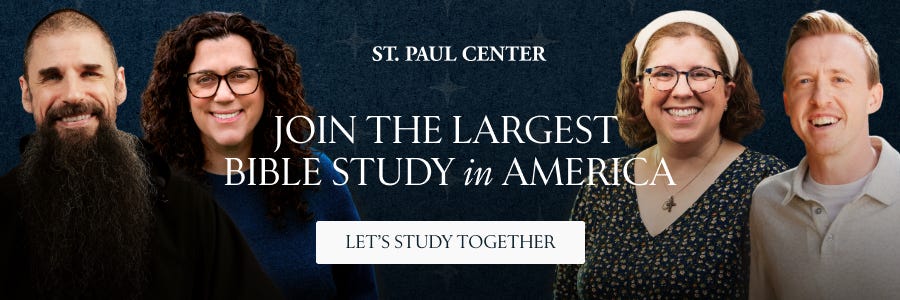St. Jude, and the US bishops' conference
Description
Hey everybody,
Today is the feast of the apostles Simon and Jude, and you’re reading The Tuesday Pillar Post.
Simon and Jude are two apostles about whom we know relatively little. In fact, we know them each most by who they were not:
Simon is the apostle with that name who did not become Simon Peter, the rock upon which our Church is built.
Jude is in two Gospels called Thaddeus, and he is sometimes called Judas— as he was in St. John’s account of the Last Supper, in which Thaddeus/Jude is identified as “Judas, not the Iscariot.”
And actually, “Jude” and “Judas” are the same Greek name — Ὶούδας— and it seems that we only started calling today’s apostle “Jude” as the Scripture was translated into English, so that people wouldn’t confuse him with, you know, the betrayer.
So why do we celebrate Simon-not-Peter and Jude/Judas/Thaddeus together?
Mostly, it seems, because of a prevailing tradition that those two apostles were martyred together, maybe in Persia, in the year 65, or possibly in Beirut, as they preached the Gospel in the year 67.
There are other traditions — Jude is also revered in Armenia, where a seventh century monastery memorializes his long-remembered martyrdom in the region. And there are stories placing the pair in Egypt or Samaria.
So where were Simon and Jude actually martyred? We don’t know.
What we know is this: The apostles went out after Christ’s ascension, and spread the Gospel until they were killed for it. We know that Christianity spread like wildfire, fast and far, as they proclaimed Christ crucified.
And we know we’re called to the exact same missionary commitment. If we do it right, the spread of the Gospel will endure, long after the details of our own lives are forgotten.
May Sts. Simon and Jude intercede for us.
The news
The previous attempt at a vote was halted after progressive members of the assembly reportedly threatened to oppose the text, saying it did not adequately discuss the topics of LGBT people and the possibility of ordaining women.
The new document was approved with 781 votes in favor, out of 809 total votes.
After the meeting, Cardinal Claudio Gugerotti, prefect of the Dicastery for the Eastern Churches, urged that other nations work with Belarus to end the war.
—
Cardinal Victor Manuel Fernandez met with Pope Leo this month, to update the pope on the progress of a working group on the criminalization of spiritual abuse.
The cardinal also asked the pope to confirm Cardinal Filippo Iannone as the group’s chair, especially after Iannone moved positions in the Vatican last month.
All of this indicates that Pope Leo is open to the prospect of canon law specifically criminalizing spiritual abuse.
But what would that actually look like? Here’s a sense of things.

This Advent, gather with fellow Catholics for a Bible study unlike any other. Bible Across America is a nationwide Bible study hosted by the St. Paul Center. During this inaugural study, we’ll encounter Christ as “Teacher and Lord,” discovering what this means for our lives as modern-day disciples.
Please allow me to make three notes:
First, a few bishops reached out to me yesterday to say they think I’m not rating Archbishop Nelson Perez highly enough among the prospects. Now, ranking prospects is not an exact science, as anybody who’s played NHL ‘94 knows.
Sure, it’s easy to make a player like Jeremy Roenick one of the best in the game, but how a player like Theo Fleury became the most single unstoppable offensive machine in that game is anybody’s guess.
Anyway, the point here is that I’ve been told more than once now the same thing: “Don’t sleep on +Perez.”
While I’m not changing my own assessment, and I still think the front runners are the front runners, I’m merely passing on to you a bit of episcopal feedback I’ve gotten.
Second, bishops also reached out to comment on the 2022 secretarial election between Archbishop Coakley and Cardinal Tobin — which I noted was relatively close, as the two were separated by only 26 votes.
But a few bishops said that understanding the vote needs context — that while it might portend the growing strength of the “progressive” voices in the conference, as I noted, it’s also the case that being a cardinal, as one bishop put it, “probably gets you 10 to 20 votes” on rank alone.
In other words, in the case of a cardinal versus an archbishop, there are some voters who might cast their ballot for the cardinal largely because of his status in the Church.
I find this absolutely fascinating, because it’s not a mentality I can easily place myself into — as you know, I’m not usually one to stand deferentially on nominal rank (unless we’re talking about the title of editor-in-chief), and I’d be more likely to vote for the candidate I’d expect to do the best job, and the one with whom I agree theologically, regardless of his status.
(Those who know my secular politics know that I’m always most sympathetic to some underdog third party contender with good ideas but not a chance of winning — so maybe I’m reflexively averse to high status candidates.)
But in terms of understanding the body of bishops, and their election habits, knowing that there are some prelates influenced in voting by ecclesiastical rank seems important.
Third: The feedback I’ve gotten most has been on altogether different questions. More than a few readers have written or commented to ask this:
Does the USCCB actually matter? And does it really matter who gets elected?
Fair enough.
I think there’s a couple of ways to look at it.





